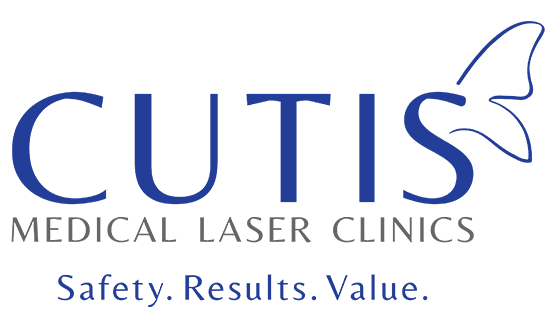 Your daily skin care routine is not the only one that can affect your skin’s appearance. Apart from the intrinsic factors (genetics, hormones, and natural aging) you have no control of, your environment can also influence your skin’s condition. Certain environmental factors can even contribute to aging or speed up its process.
Your daily skin care routine is not the only one that can affect your skin’s appearance. Apart from the intrinsic factors (genetics, hormones, and natural aging) you have no control of, your environment can also influence your skin’s condition. Certain environmental factors can even contribute to aging or speed up its process.
Here are some environmental factors that can affect your skin:
Temperatures
Extreme temperatures (hot and cold) can cause your skin to become dry or oily. Cold weather, for instance, minimizes the secretion of sebum, causing your skin to dry out. This is especially true for sustained or prolonged cold weather.
Hot and humid conditions, meanwhile, cause your sweat glands or sebaceous glands to produce more sweat and oil. This then leaves your skin shiny or oily. When there is excess sebum, the pores can get clogged, which may then trigger acne.
Sunlight (or sun exposure)
While moderate sunlight exposure is good for your health, too much of it can damage your skin. This is because the sun emits ultraviolet (UV) radiation that contributes to the accelerated breakdown of collagen and elastin. Prolonged and unprotected sun exposure can cause premature skin aging with the appearance of wrinkles and dark spots.
There are two types of UV rays that can affect your skin:
- UVA rays – They account for about 95% of UV rays that reach the earth’s surface. UVA rays can penetrate the skin more and are associated with skin damage and certain types of skin cancers. These rays also contribute to premature skin aging.
- UVB rays – They only account for about 5% of UV rays that reach the earth, but they have higher energy levels. UVB rays can penetrate the outermost layer of the skin and directly damage its DNA. They also cause most skin cancers. Prolonged exposure to UVB rays can lead to sunburns.
Pollution
Tiny airborne pollutants can penetrate your skin, triggering skin damage and other skin issues. This is because pollution generates free radicals that cause oxidative stress, a process that triggers cell damage. Oxidative stress also speeds up skin aging and makes it susceptible to certain skin problems.
Along with dust, smoke, and sunlight, pollution is a common source of free radicals. Too much of it can take a toll on your skin and contribute to rashes, breakouts, and irritation. Dirt and dust particles can also build up on your skin’s surface and clog the pores, especially when they mix with excess oil and dead skin cells.
- Pollution can contribute to:
- Enlarged pores
- Dark spots and pigmentation
- Dull skin
- Skin redness and sensitivity
- Collagen breakdown
Other external factors (your lifestyle)
Apart from the environmental factors mentioned above, your lifestyle can also affect your skin health. If you’re looking to delay the natural aging process, it is best to look into your habits today and start making healthy lifestyle choices.
- Smoking – This habit damages both collagen and elastin, accelerating skin aging. Smoking contributes to premature wrinkling and sallow complexion by decreasing blood flow and depriving your skin oxygen and nutrients.
- Sleep – Adequate sleep allows your body and cells to recuperate. Too little of it can lead to lower energy levels the next day, as well as dull skin, dark circles, and aggravated skin problems like acne. Read our previous blog for 7 ways to get beauty sleep.
- Stress – Too much stress causes your body to release excess cortisol or stress hormones. This can lead to increased oil or sebum production, which can then clog your pores and trigger breakouts. Excess cortisol can also break down collagen and elastin, contributing to premature aging.
- Exercise – This boosts blood circulation, which is beneficial in delivering nutrients and oxygen to the skin. Exercise can also tone your muscles and reduce cortisol levels. Just be sure to wash your face (and moisturize) after a sweat session to avoid the sweat from clogging your pores.
Protecting your skin
To protect your skin from the harsh effects of certain environmental and external factors, you need to treat it right. This means wearing sunscreen, washing your face daily, and using skin care products based on the climate you’re in. You might also want to consider aesthetic treatments that can make your skin youthful and glowing.
- Ultherapy® – This non-invasive face lifting procedure uses ultrasound energy to tighten skin on the face, neck, and chest. It can treat mild skin laxity, improve the appearance of lines and wrinkles, as well as stimulate collagen production.
- Laser Genesis™ Skin Rejuvenation – Using an FDA-cleared laser technology, Skin Rejuvenation Laser can treat and improve enlarged pores, fine lines, uneven skin texture, and facial redness. This non-invasive procedure also stimulates collagen regrowth.
- Pearl™ Skin Resurfacing – The Pearl procedure uses pulses of laser light to treat both dermis and epidermis. It provides “stem-to-stern” rejuvenation and can address sun damage, pigmentation, and wrinkles. Pearl gives the skin a “pearl-like glow” with fewer treatments.
- Volite Skin Booster – Facial HA Fillers Volite is designed to improve skin quality for 9 to 12 months with just a single treatment. It aims to boost skin hydration as well as improve the elasticity and smoothness of the skin.
- Profhilo™ Bioremodelling – This injectable can transform and remodel your skin by bio-stimulating collagen, elastin, and fat stem cells. It contains 100% pure hyaluronic acid and can help hydrate the skin, address laxity, and treat other signs of aging.
Make an extra effort to protect your skin from environmental factors. Contact Cutis Medical Laser Clinics in Singapore today and schedule a consultation with one of aesthetic doctors to find out how we can help improve your skin quality.
- If you would like to be an informed patient, please contact us at +65-6801-4000 or
hello@cutislaserclinics.com. - Cutis Medical Laser Clinics, 9 Scotts Road Pacific Plaza, Scotts Medical Center #08-07, Singapore – 228210
+65-6801-4000 - hello@cutislaserclinics.com
